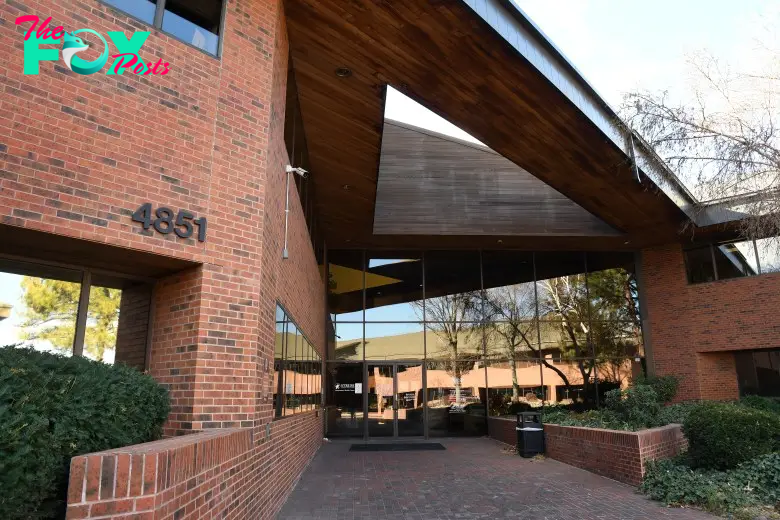Health
Medicaid “unwind” leads to job, program cuts at Denver’s community mental health center
Denver’s community mental Health center is the latest to eliminate jobs and cut programs as Colorado’s safety-net Health system staggers from a massive drop in Medicaid rolls.
WellPower, which provides mental health care regardless of whether patients have insurance, is cutting six case managers from its co-responder team that pairs social workers with city park rangers, fire and sheriff’s officers. It’s also eliminating its virtual therapy program, which connected 579 patients with therapists online last year. And it’s ending its lease of Garfield House, an apartment complex where the mental health center has placed patients who needed housing.
The safety-net mental health center, one of 18 statewide, is attempting to close a $6 million budget deficit, mainly caused by fewer patients with Medicaid government insurance.
Colorado had 1.8 million people enrolled in Medicaid during the pandemic, a historic 30% of the state’s population and up from 21% before COVID. Medicaid enrollment is now down to about 22% of the state’s population after the end of the three-year federal public health emergency put in place at the start of the pandemic.
Before what’s called the Medicaid “unwind,” about 6% of WellPower’s patients had no insurance. Now, that number is 19%. “Those folks still need care,” WellPower CEO Carl Clark said. “We do believe some folks lost Medicaid and they should not have. It has been a mess.”
Besides the decrease in Medicaid funding, the mental health center has also lost local government investments and grants as funders are “pulling back and shifting their own spending in the wake of the changing behavioral health environment in Colorado,” Clark said.
“While we knew this shift would result in changes to our billing practices, the size of the initial funding decrease from the state was far larger than we could have anticipated,” he said.
The city of Denver reduced WellPower’s contract for the co-responder program by $800,000, resulting in six case managers losing their jobs. The cuts did not affect outreach workers who go out on the streets to offer services to people who are homeless, but the loss of case managers will mean diminished follow-up care. The program is separate from the STAR program, which sends mental health workers out with paramedics on 911 calls.
WellPower also saw the end of a grant from the federal Substance Abuse and Mental Health Services Administration that was helping fund its online therapy program, TherapyDirect. Not enough people were using the program, despite multiple marketing campaigns, to justify raising new money to keep it going, Clark said.
Employees whose jobs are being eliminated are being offered other positions within the mental health center, which enacted a “hiring pause” about a year ago. The center now employs about 900 people compared with 1,000 last year.
Clients living in Garfield House will get to keep their housing vouchers, and staff will help them find places to move if needed, Clark said.
WellPower, which has about 21,000 clients, saw its $150 million annual budget drop to $144 million this year. “The big shift was the number of people who have no insurance,” Clark said. “For people who lost Medicaid that we are seeing, their needs didn’t go away.”
Layoffs, program cuts happening at several mental health centers
Larimer County’s community mental health center, SummitStone Health Partners in Fort Collins, abruptly laid off 75 employees in August, also blaming the decline in Medicaid enrollment and the state’s evolving behavioral health landscape. The center cut $14 million to break even on its $80 million budget.
Mind Springs, the safety-net mental health center for several counties in northwestern Colorado, laid off 49 people, 13% of its administrative staff, over the summer. Centennial Mental Health, which serves 10 counties in the northeastern corner of the state, laid off three of its five top executives in June. And Jefferson Center for Mental Health, which serves Jefferson, Clear Creek and Gilpin counties, has a $5 million shortfall on a $89 million budget. The center lost $7.5 million last year.
The deficit led Jefferson County and Denver mental health centers to call off plans for a merger, a move intended to streamline administrative costs.

“These have been very difficult times for community behavioral health,” said Kiara Kuenzler, CEO and president of Jefferson Center.
Kuenzler called it a “crossroads for behavioral health” in which need is outpacing funding, despite “widespread recognition of how critical mental health and substance use treatment are to overall wellbeing of individuals, families and entire communities.”
“The capacity and resources that we have been able to expand over the past several years are now in jeopardy,” she said. “We are moving in the wrong direction.”
Shift in state policy affected payment stream
At the same time the number of patients insured by Medicaid dropped, the way Colorado funds behavioral health care is shifting.
-

 Health14h ago
Health14h agoFDA Approves the First New Schizophrenia Drug in Decades
-

 Health20h ago
Health20h agoHow to Survive Election Season Without Losing Your Mind
-

 Health21h ago
Health21h agoDyson air purifier deals: Our top picks ahead of the Amazon Prime sale
-

 Health1d ago
Health1d agoAnti-Trans Laws Linked to Increase in Trans and Nonbinary Youth Suicide Attempts
-

 Health1d ago
Health1d agoIs it bad to listen to music all the time? Here’s how tunes can help or harm
-

 Health2d ago
Health2d agoHow do you see pictures in your brain?
-

 Health4d ago
Health4d agoWhat happens when you hold in a fart?
-

 Health4d ago
Health4d agoHow the U.S. Military Plans to Tackle Its ‘Forever Chemical’ Problem



























